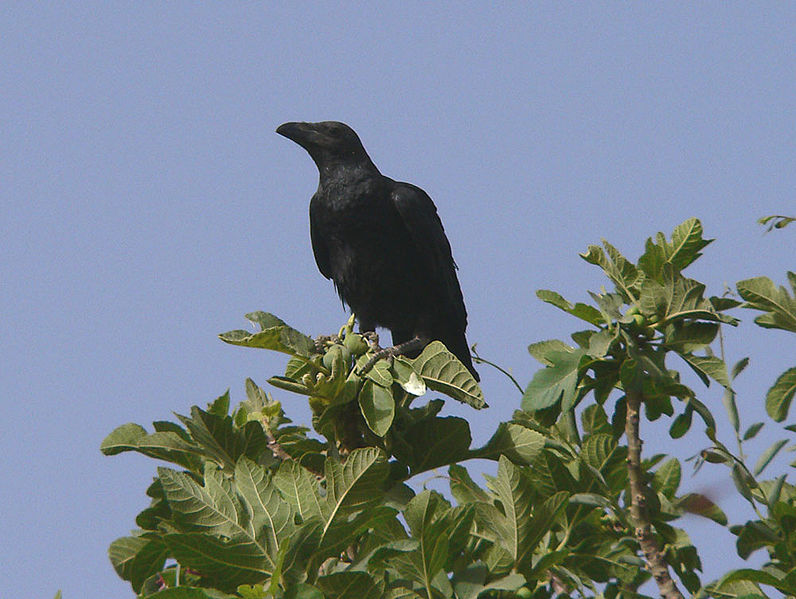We're open daily! View holiday hours
Science News
Corvid Week: Smart, Sneaky Ravens
July 15, 2014
by Molly Michelson

Ravens and crows are some of the smartest animals on our planet and this week Science Today is celebrating all things corvid—looking back at some of our favorite stories about these brilliant birds.
Today’s story about really sneaky ravens was originally posted on March 23, 2011:
Publishing online in Naturwissenschaften last week, Israeli researchers have discovered that ravens and their kin are not only clever, they’re also crafty.
The scientists studied a pair of brown-necked ravens (Corvus ruficollis) and found that they were very good at stealing food from Egyptian vultures (Neophron percnopterus).
The pair of ravens had their eyes on a high-quality food source, large ostrich eggs. Female ostriches lay their eggs in a communal nest—resulting in large concentrations of as many as 40 eggs. The dominant female and breeding male can only incubate 12-14 of these and discard the rest, creating a circle of unwanted eggs around the nest.
The ravens are after the discarded eggs, but the eggshells are so thick, they are inaccessible to these birds. According to a previous study by two of the same authors, the intelligent ravens are known to recognize their limitations.
That’s where the vultures come in. The vultures are smart birds, too, and like the ravens, are known to use tools. (In the avian world, scientists have found that tool-use equals bigger brains.) The vultures have found a way into ostrich eggs—rounded stones. They use the stones to crack the eggs and their sharp beaks do the rest.
So the ravens wait patiently, hiding from the vulture until the work has been done opening the egg and revealing its contents. At that moment, the ravens, working cooperatively, begin to harass the vulture until it flies away, leaving behind the delicious, accessible egg.
The vulture is not as bright as the ravens—and doesn’t learn from its mistakes. The ravens have targeted the same vultures more than once, with the same results.
The researchers seem to applaud the ravens’ kleptoparasitism. From the study:
It appears that the intellectual flexibility and response to ever-changing conditions has allowed this highly intelligent family to persist in extreme conditions—from the freezing tundra to the hot deserts…
Most apparent in the ravens is their innovative thinking and ability to predict the actions of the potential host or prey.